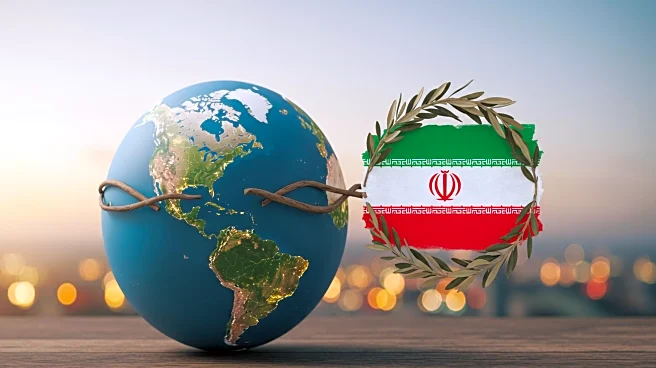What is the story about?
What's Happening?
Iran's Foreign Minister Abbas Araghchi is set to hold a conference call with French, German, and British counterparts to discuss the looming threat of United Nations sanctions over its nuclear program. This call comes as the European nations, part of the 2015 nuclear deal, consider invoking the 'snapback' mechanism, which would reimpose sanctions if Iran is found non-compliant. The urgency of the situation is heightened by Iran's recent cessation of cooperation with the International Atomic Energy Agency (IAEA) following a conflict with Israel, which has left the international community in the dark regarding Iran's nuclear activities. Iran has enriched uranium to 60% purity, nearing weapons-grade levels, raising concerns among the European nations.
Why It's Important?
The potential reimposition of sanctions on Iran could have significant geopolitical and economic implications. For the U.S. and its allies, ensuring Iran's compliance with nuclear agreements is crucial for regional stability and non-proliferation efforts. The European nations are under pressure to act before the 'snapback' provision expires in October, which would complicate future sanctions due to potential vetoes from U.N. Security Council members like China and Russia. The situation also impacts global oil markets, as Iran is a major oil producer, and sanctions could affect supply and prices.
What's Next?
The European nations have set a deadline of August 31 for Iran to reach a satisfactory solution regarding its nuclear program. Failure to do so could lead to the activation of the 'snapback' mechanism, reinstating sanctions. Iran's engagement with European nations and potential discussions with allies like China and Russia will be crucial in determining the outcome. The IAEA's access to Iran's nuclear sites remains a pivotal issue in the negotiations.














